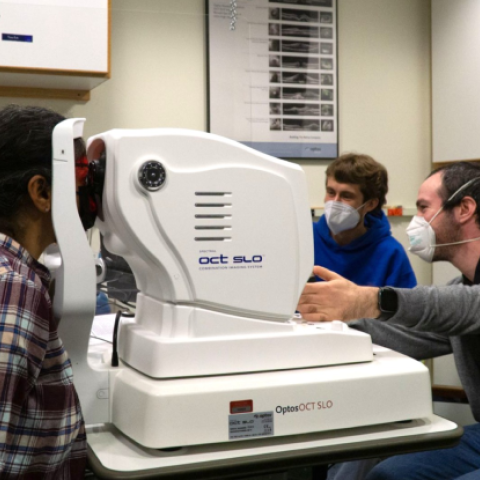
- Principal Investigator:
- Laura Walker
Age-related macular degeneration (AMD) remains a leading cause of visual impairment in elders and has no known cure. Treatments now exist to slow the “wet” form of the disease, yet even treated individuals may benefit from low vision rehabilitation and eccentric viewing training. Much research has concerned itself with oculomotor control in these patients for reading, as it is a common complaint. The impact of visual and oculomotor disturbances on manual tasks has been almost completely ignored to date, yet good eye hand coordination is essential to tasks that we encounter in daily life, from pouring a cup of tea to making a sandwich. When maculopathy progresses to disrupt the fovea with a central scotoma or blindspot, patients develop a preferred retinal locus (PRL) in the periphery. As the PRL develops, both ocular and manual motor systems adapt to use this new location as a reference, leading some researchers to refer to the PRL as a “pseudo-fovea”. Anecdotes from the clinic suggest, however, that shortly after central vision is lost the hand still moves to locations congruent with the foveal location. In this proposal, we conduct the first comprehensive experiments on a large cohort of subjects that deliberately seek to characterize the contributions of vision and oculomotor control to reaching deficits in patients with central field loss. Behavioral data on clinical populations is typically inaccessible to basic researchers, thus we will make our resulting dataset publicly available for further research and analysis.

